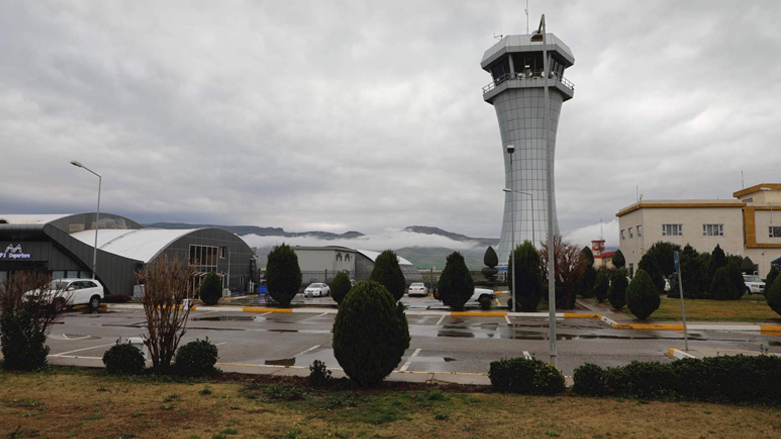Turkey’s ban on Sulaimani airport extended until next year, says governor

ERBIL (Kurdistan 24) – Turkey has extended its airspace closure to all planes taking off and landing at Sulaimani International Airport until next year over the Kurdistan Workers’ Party (PKK) presence, Governor Haval Abu Bakir confirmed to Kurdistan 24 on Monday.
Initially imposed in early April, the ban has been extended until January 3, 2024, Governor Abu Bakir said.
The governor did not elaborate further on the nature of negotiations between the city’s authorities and Turkish authorities to open the airspace.
Turkey’s strict measure came in response to “infiltration” of the airport by Ankara's archfoe, the PKK, the Turkish foreign ministry said at the time. Sulaimani officials vehemently reject the claim, insisting the airport is a “civilian” one.
The ban’s deadline was for July 3 with the possibility of an extension.
It is not the first time Turkey stopped flights to Sulaimani. Ankara grounded flights to Sulaimani for over a year following the Kurdistan Region’s independence referendum in Sept. 2017.
The ban at first included both the Erbil and Sulaimani airports, as part of an international travel ban imposed by Baghdad. However, in March 2018, after Baghdad lifted its ban, Turkey agreed to resume flights only to Erbil, and not Sulaimani.
At the time, Turkey claimed that the Patriotic Union of Kurdistan (PUK) and the Gorran (Change) Movement — the two dominant parties in the province of Sulaimani — had been providing support to the Kurdistan Workers’ Party (PKK). It lifted its ban in Jan. 2019.
Fighting the PKK since the mid-1980s, Turkey has launched numerous ground and aerial military operations against the Kurdish militants inside the Kurdistan Region, resulting in tens of thousands of causalities.
Bolstered by its advanced drone industry, Ankara has in recent years assassinated several suspected members of the group inside urban centers, including in Sulaimani and Garmiyan areas.
Additional reporting by Kurdistan 24 Sulaimani reporter Aram Bakhtiyar
